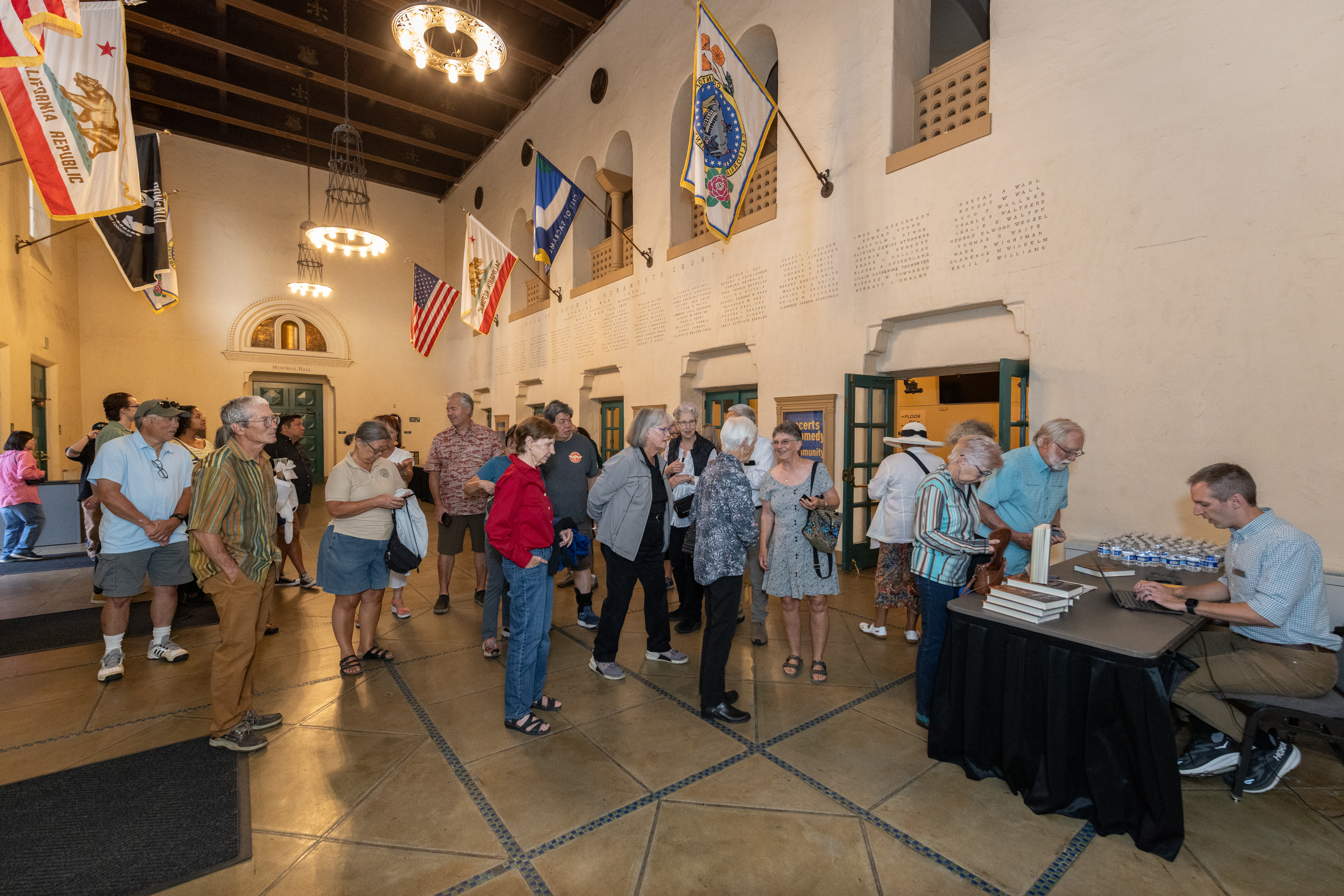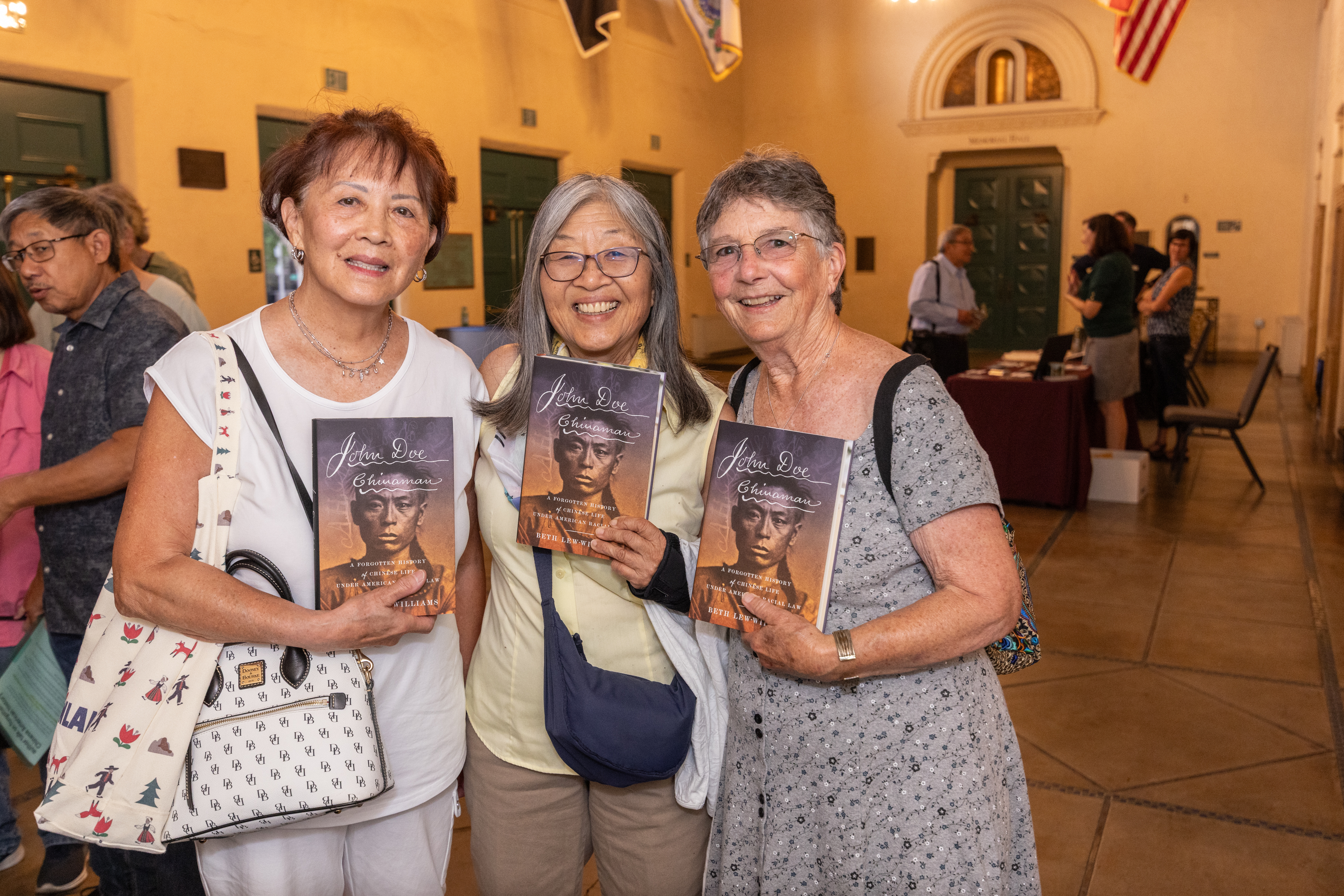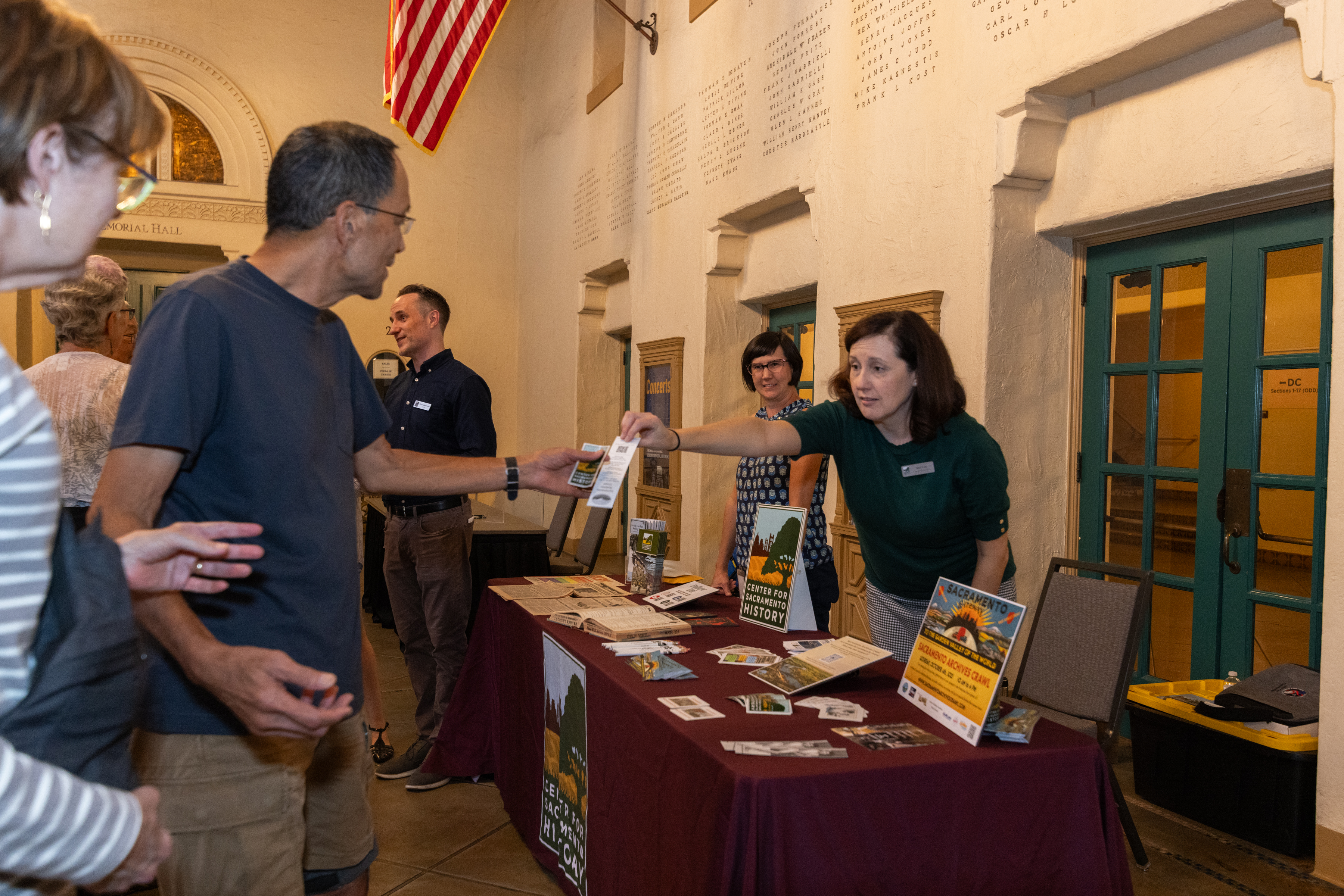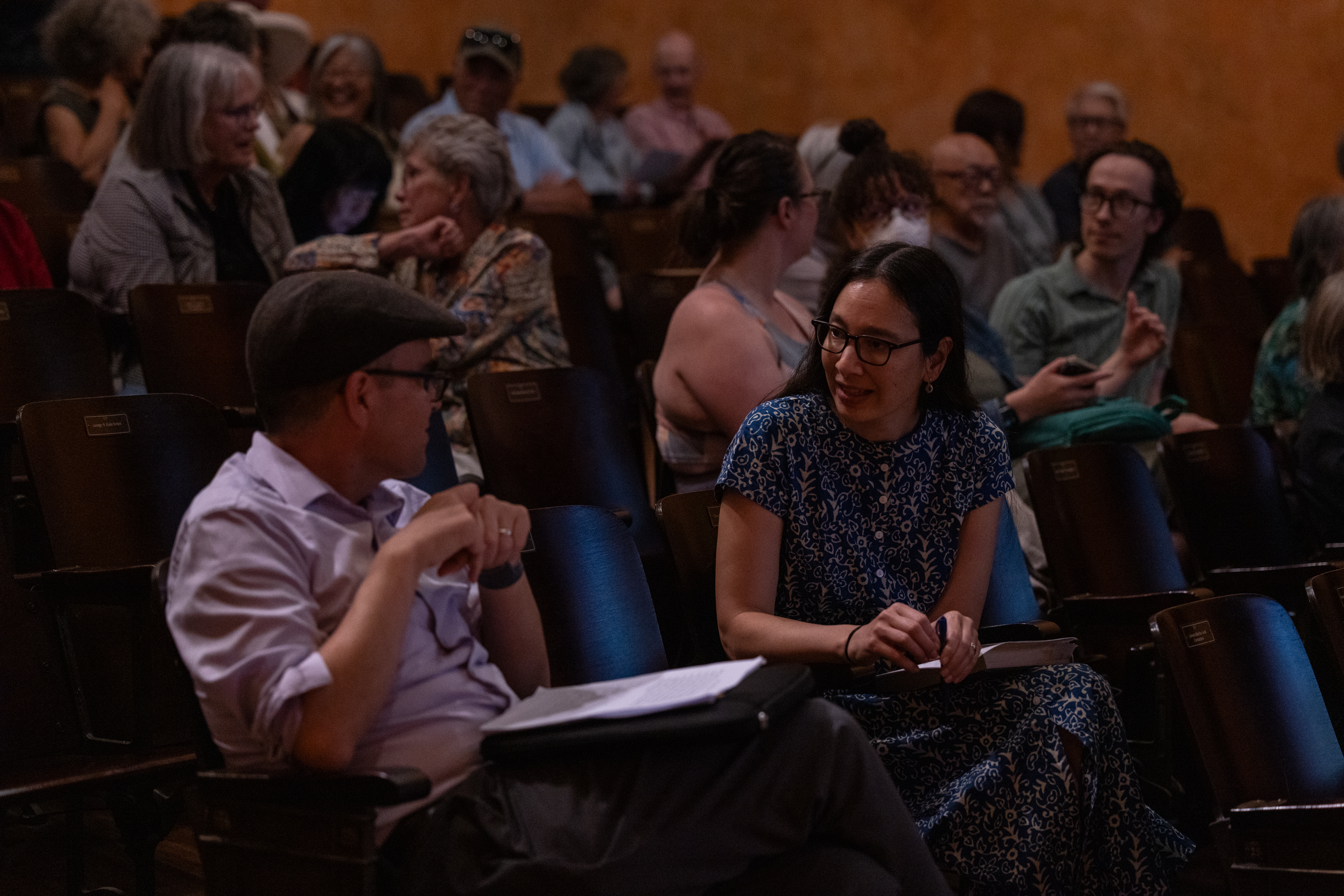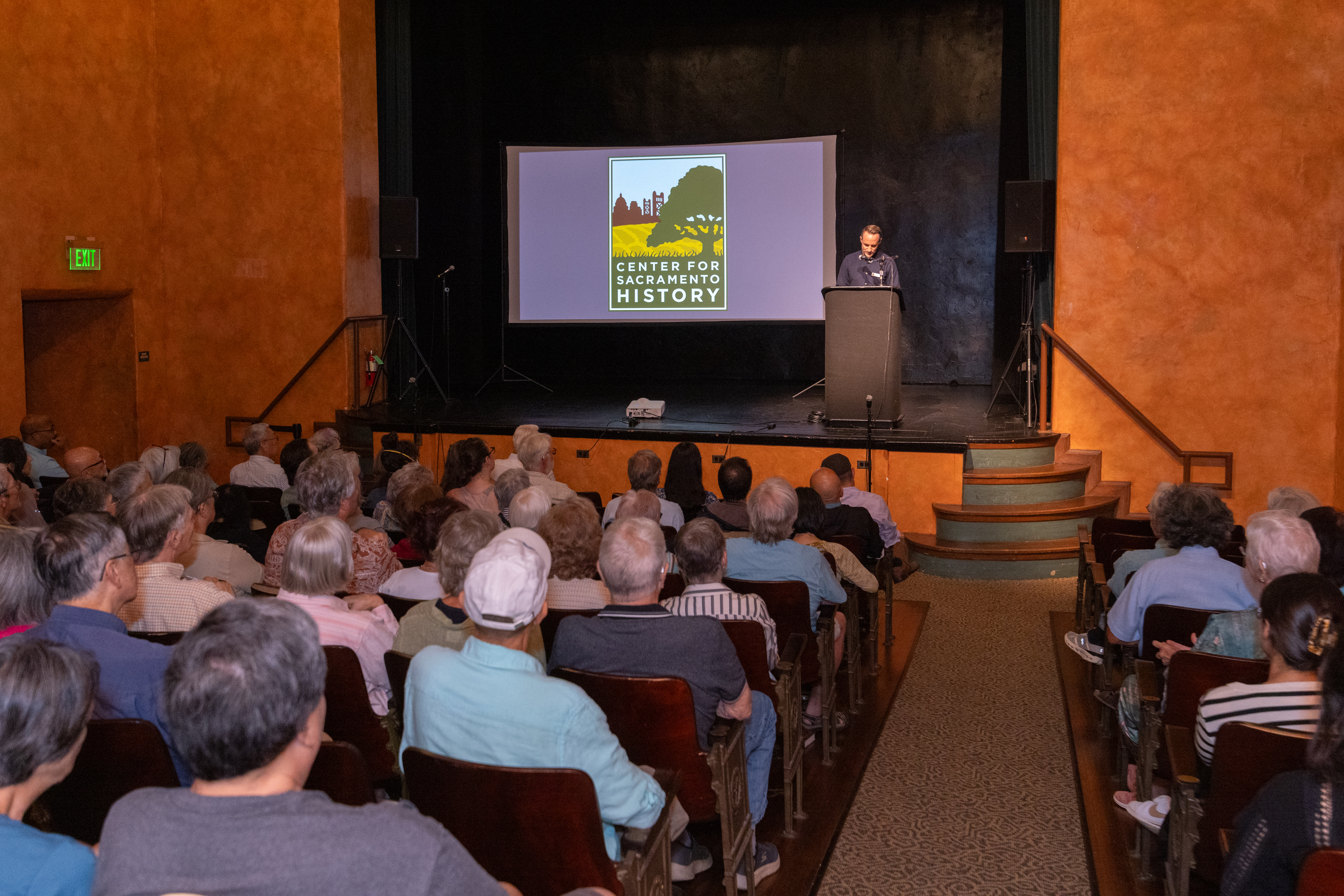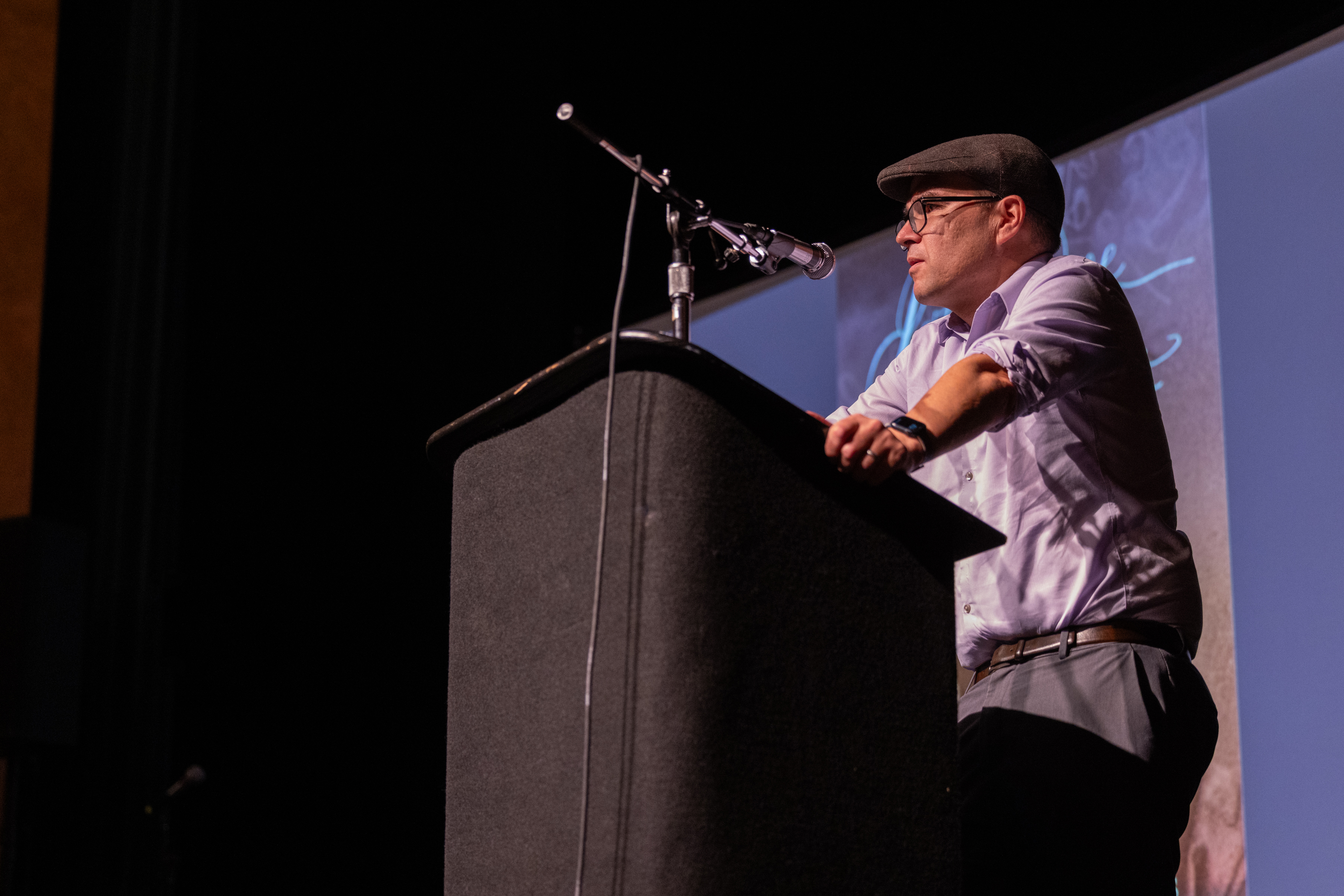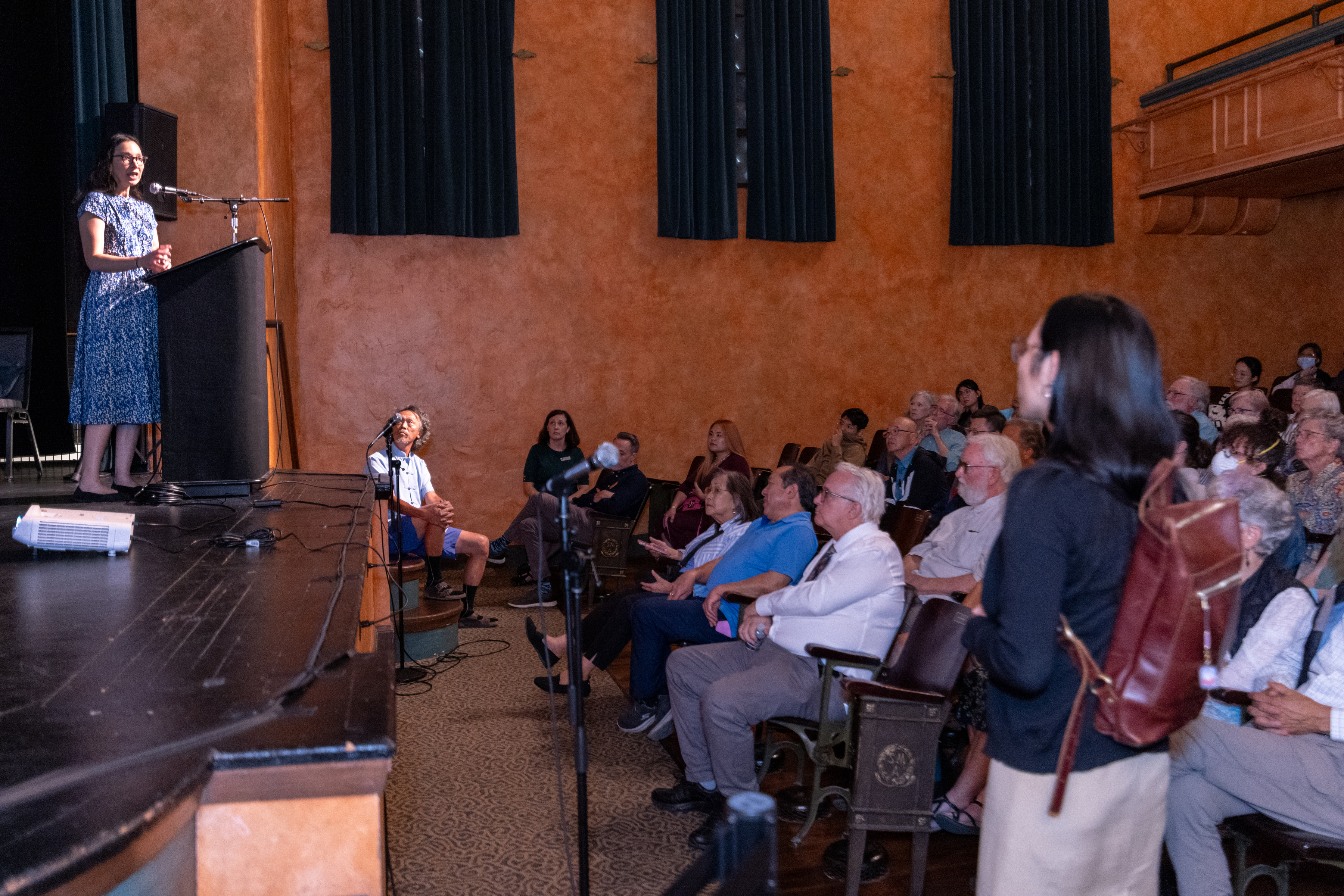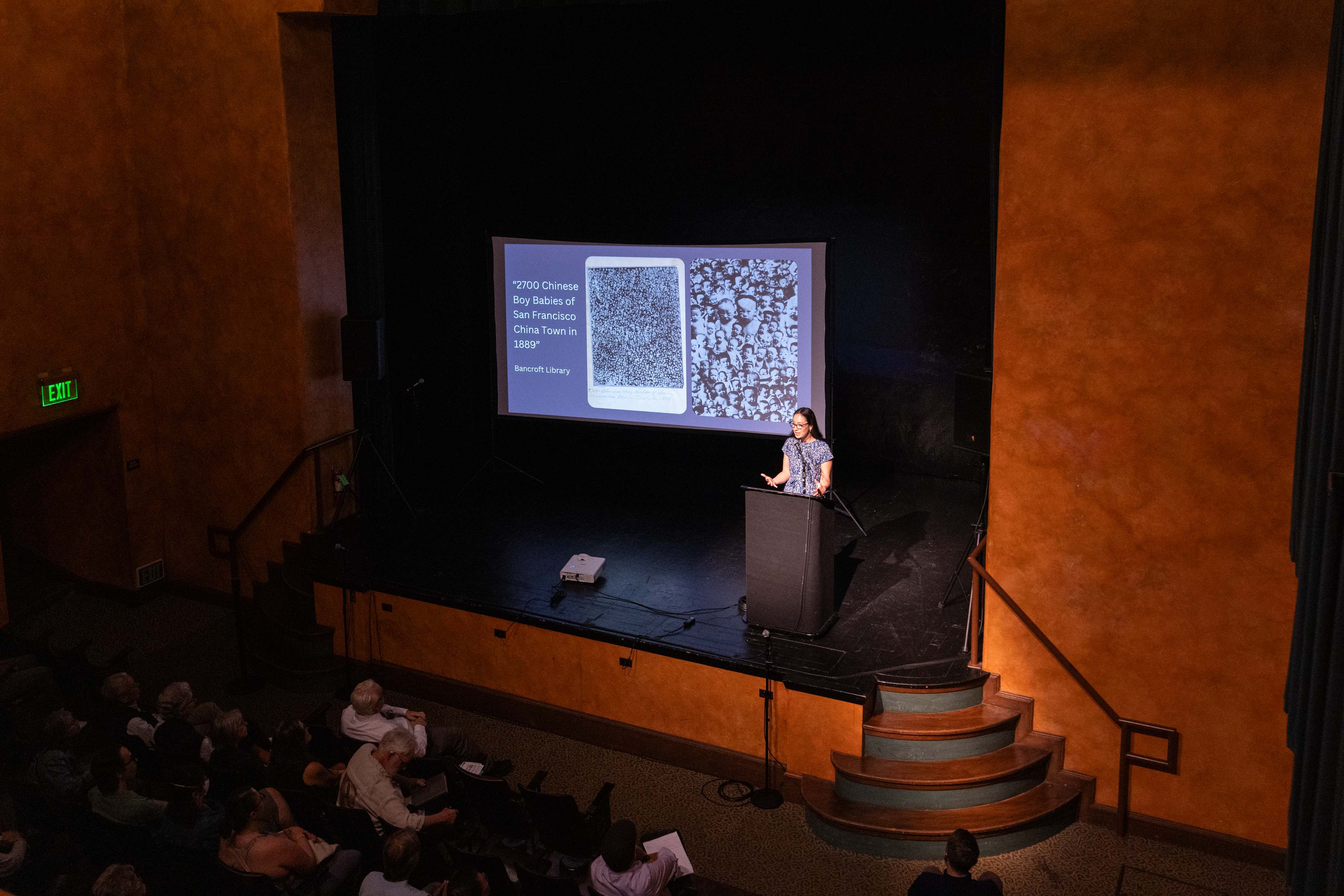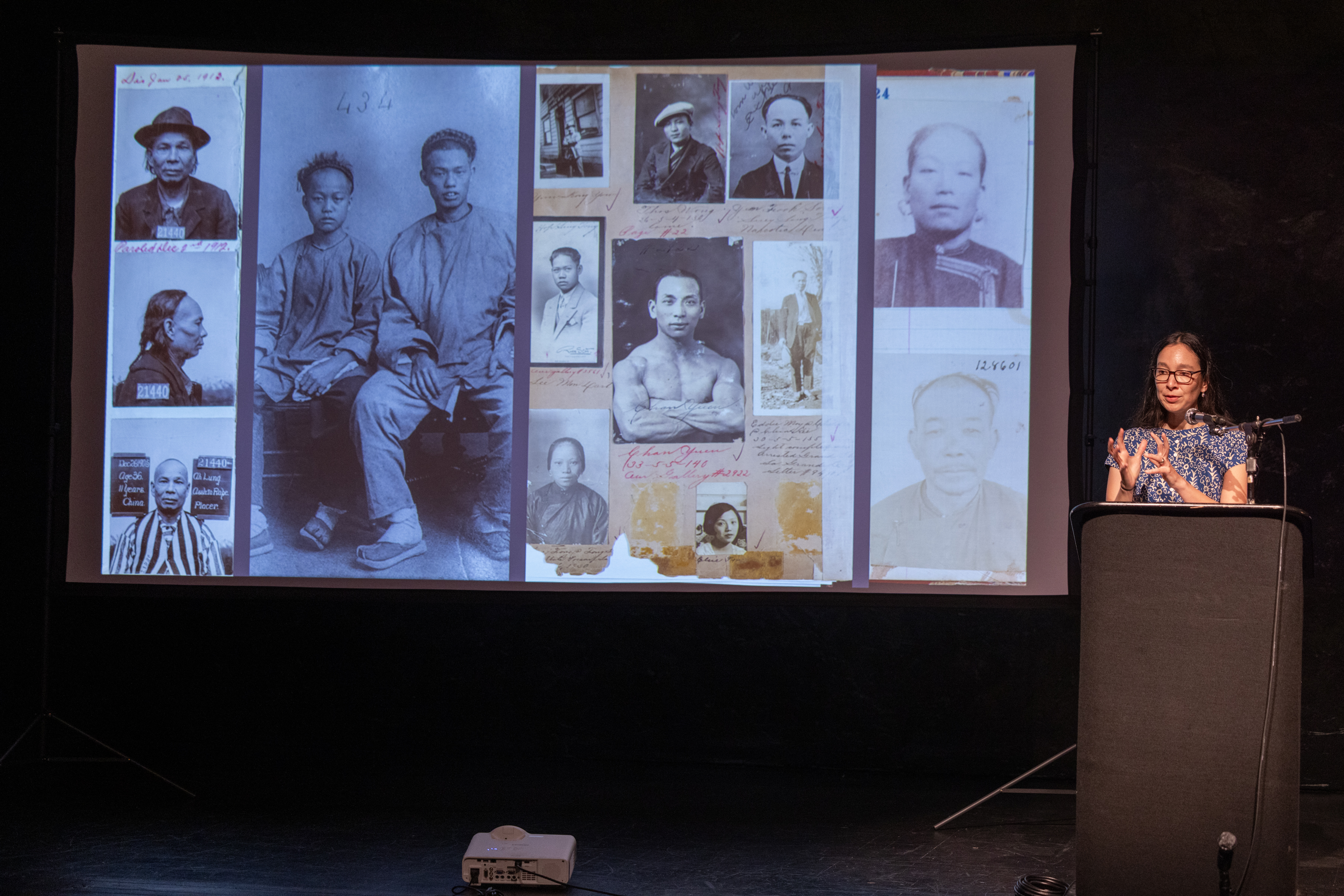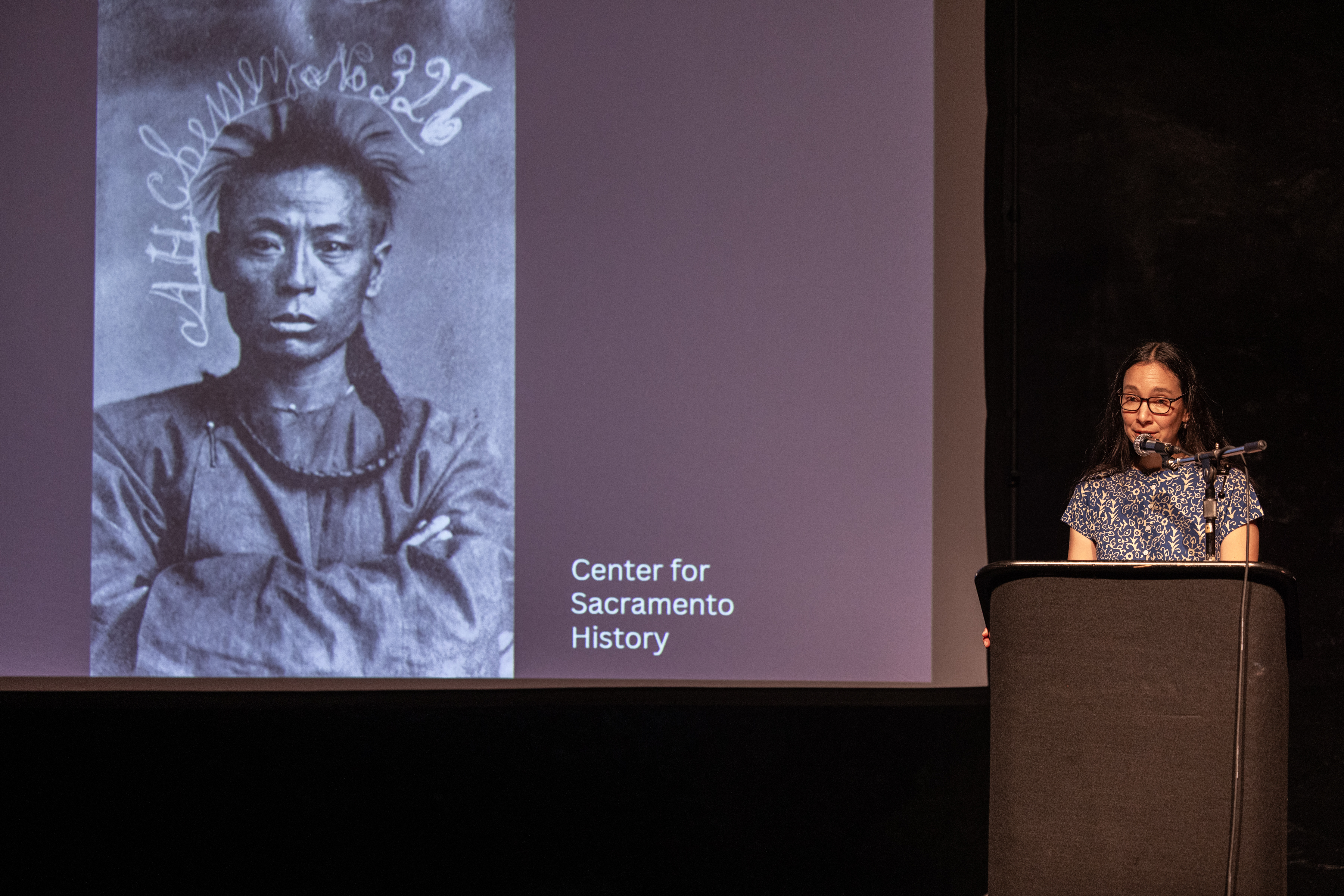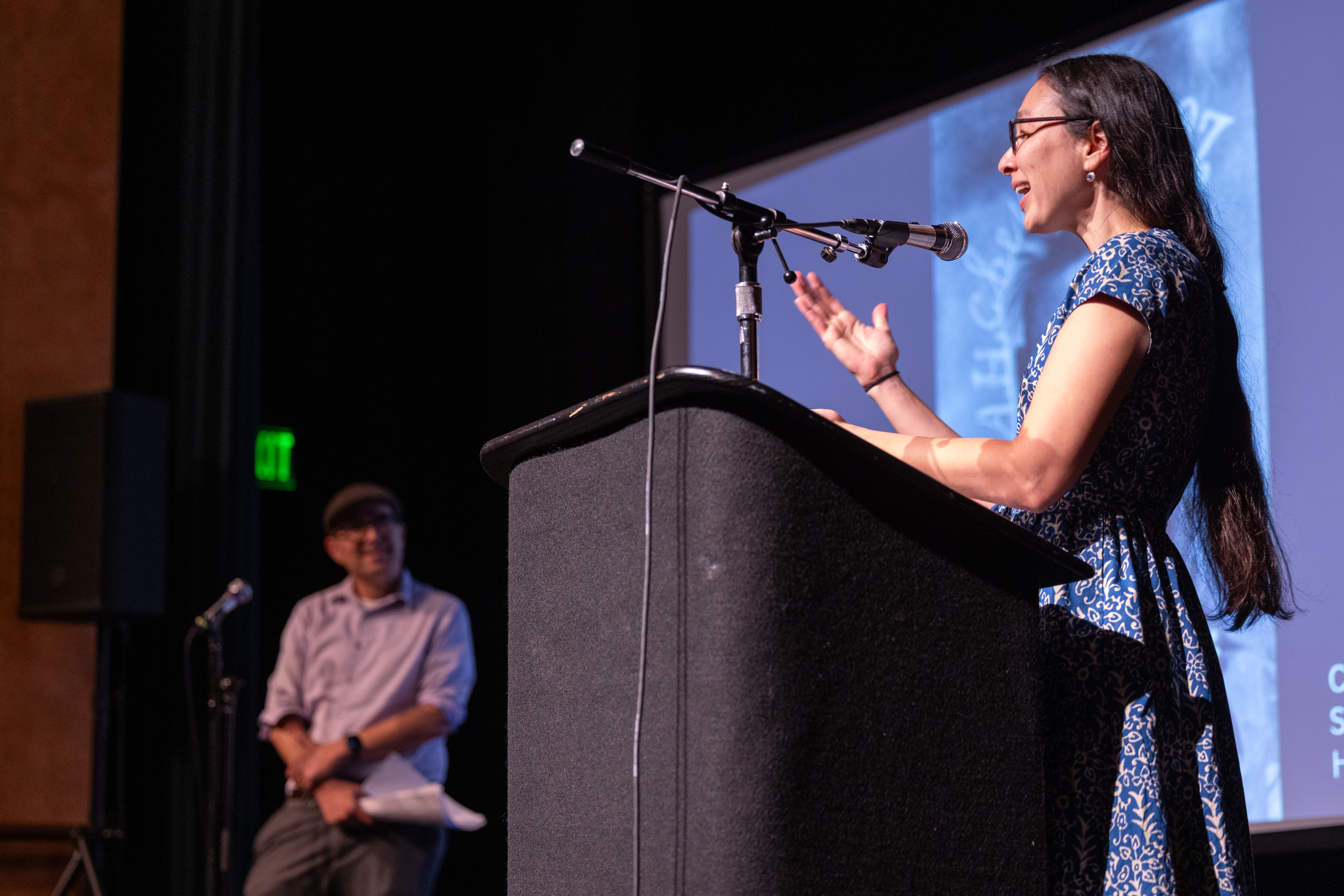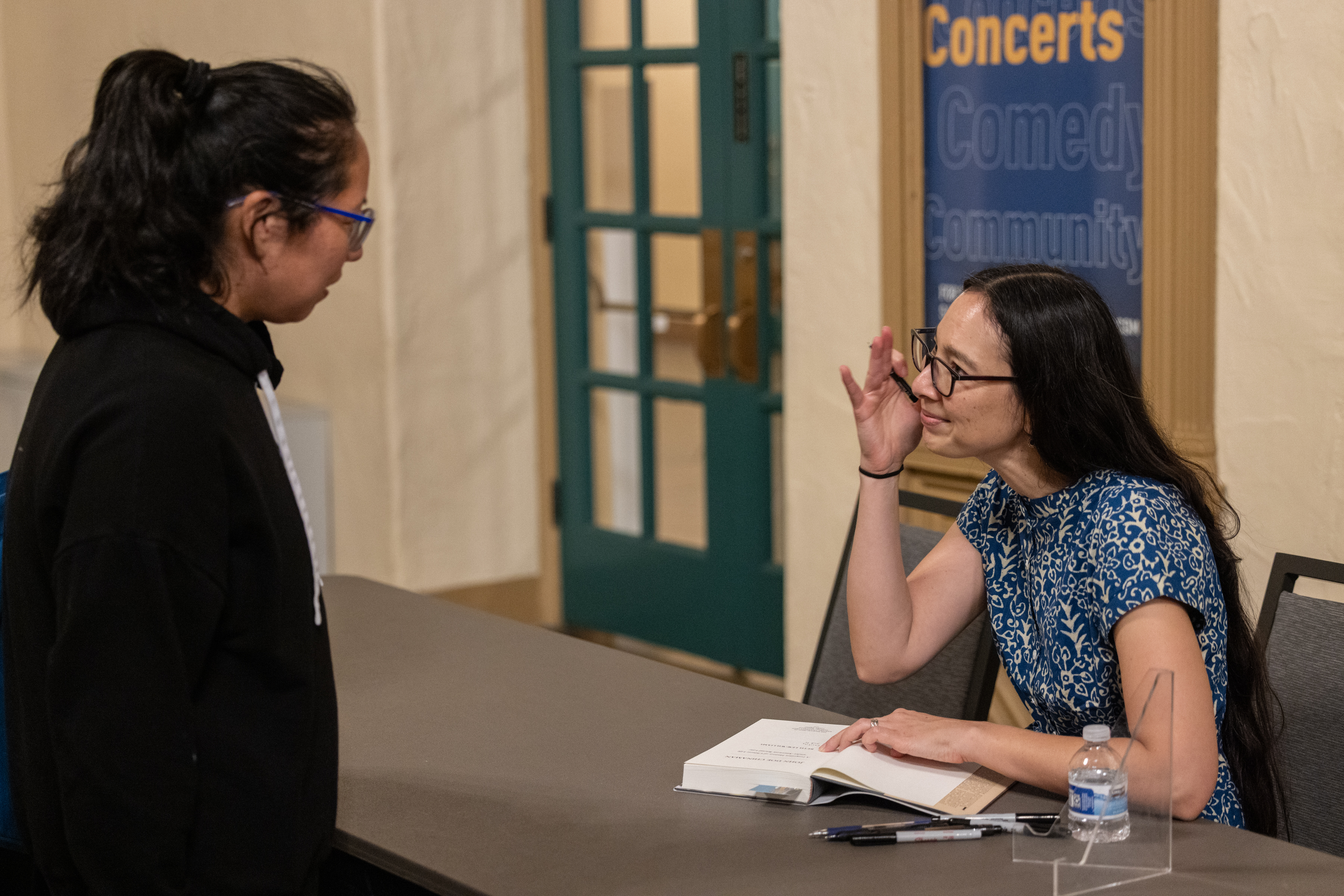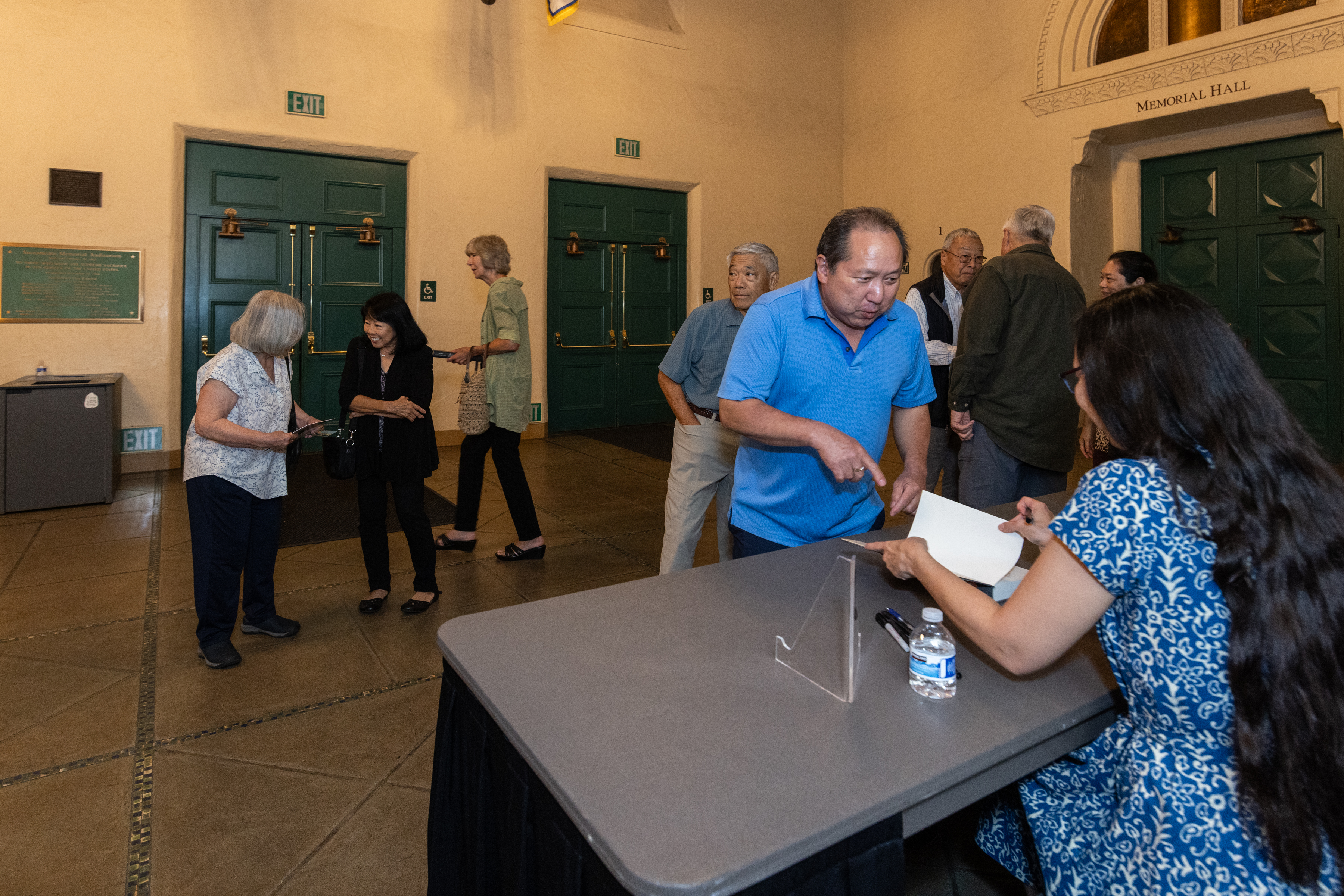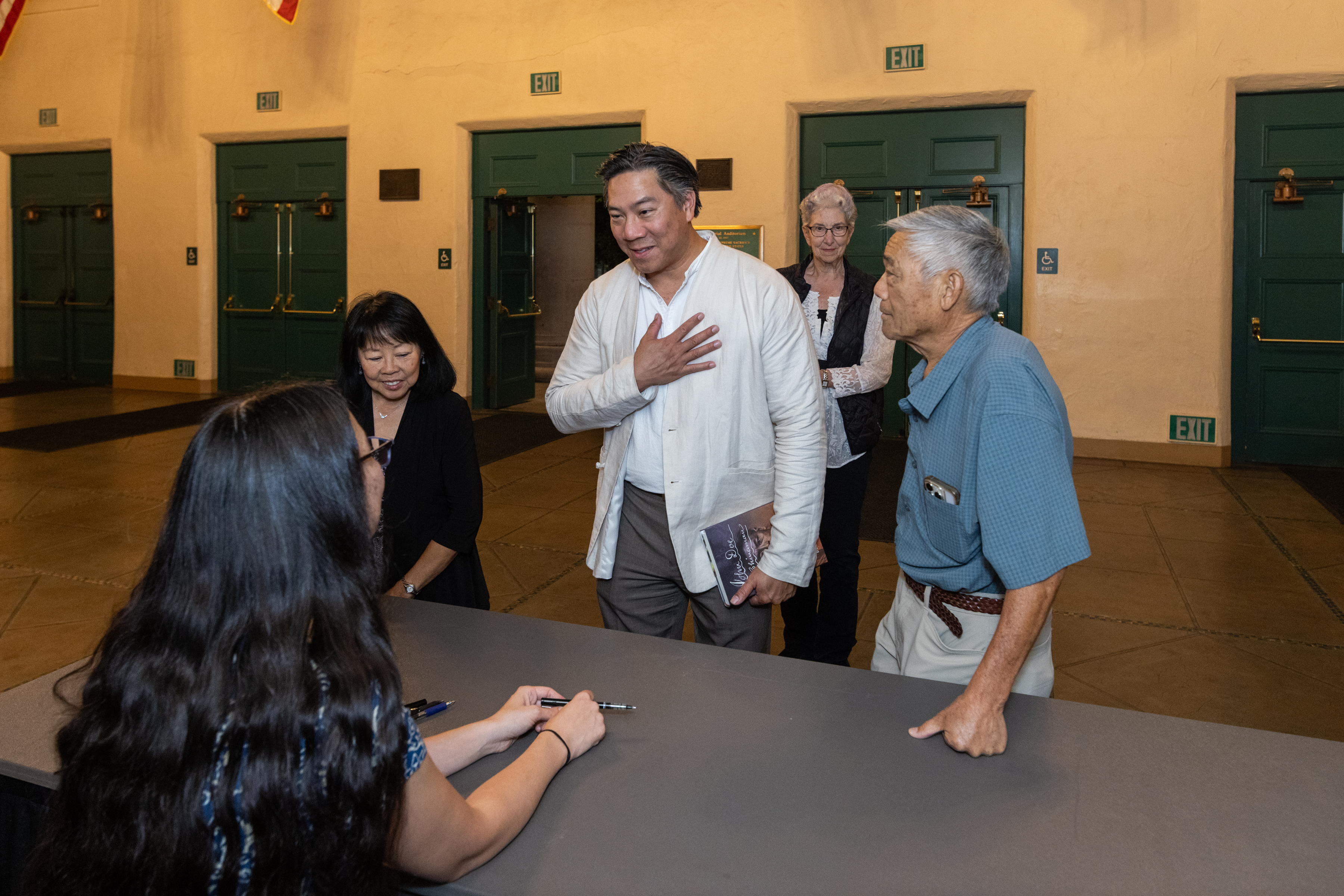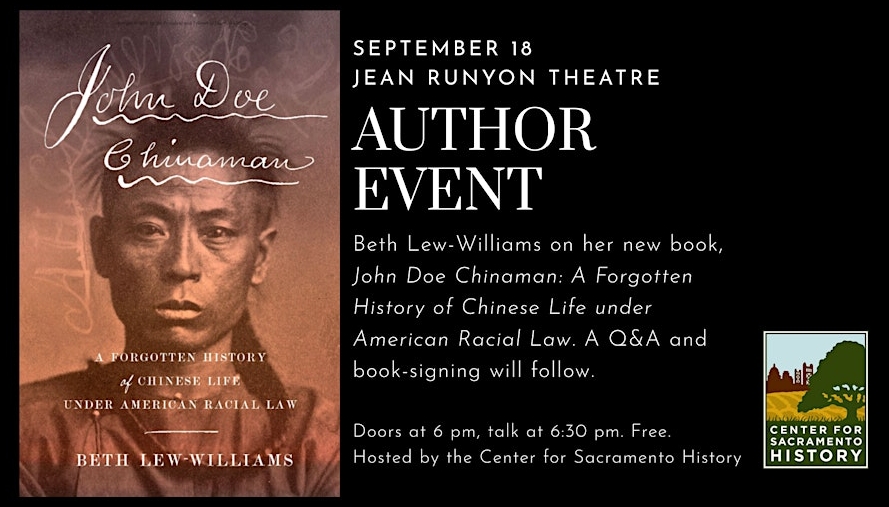Speakers Series
The Center hosts a Speakers Series to highlight recent scholarship on the Sacramento region, showcase its collections, and reach out to audiences not typically served by the Center. Past speaker events have included The Time is Now: The Civic Life of Sacramento’s Nathaniel Colley, Red Menace! The Sacramento Conspiracy Trial of 1935, The Final Odyssey of Robert F. Kennedy, and John Doe Chinaman: A Forgotten History of Chinese Life under American Racial Law.
Please check our social media for updates on upcoming Speaker events.
LATEST AUTHOR EVENT
John Doe Chinaman: A Forgotten History of Chinese Life under American Racial Law
On September 18, 2025 author Beth Lew-Williams spoke on her new book "John Doe Chinaman: A Forgotten History of Chinese Life under American Racial Law." Williams conducted some of the research for her book in our archives. A Q&A and book signing followed the talk held in the Jean Runyon Theatre at the Memorial Auditorium.
About the Book
A revelatory history of the laws that conditioned the everyday lives of Chinese people in the American West—and of those who negotiated, circumvented, and resisted discrimination.
Legal discrimination against Chinese people in the United States began in 1852, when California passed a tax on foreign gold miners that was explicitly designed to exploit Chinese labor. Over the next seventy years, officials in California, Oregon, Washington, and other western states instituted more than five thousand laws that marginalized and controlled their Chinese residents. Long before the Chinese Exclusion Act banned Chinese immigration, these laws constrained the activities and opportunities of Chinese people already living in the United States.
In this eye-opening account, Beth Lew-Williams describes a legal architecture redolent of Jim Crow but tailored specifically to people often referred to only as “John Doe Chinaman” or “Mary Chinaman” in official records. Enforced by police and tax collectors, but also by schoolteachers, missionaries, and neighbors, these laws granted the Chinese only limited access to American society, falling far short of equality or belonging. Cementing stereotypes of Chinese residents as criminals, invaders, and predators, they regulated everything from healthcare to education, property ownership, business formation, and kinship customs. Yet in the face of these limitations, Chinese communities reacted resourcefully. Many fought, evaded, and manipulated these laws, finding ways to maintain their prohibited traditions, resist unfair treatment in court, and insist on their political rights.
Drawing on dozens of archives across the US West, John Doe Chinaman reveals the depth of anti-Chinese discrimination beyond federal exclusion and tells the stories of those who refused to accept a conditional place in American life.
Photograph by Doug Cupid Photography
About the Author
Beth Lew-Williams is Professor of History and Director of the Program in Asian American Studies at Princeton University. Her first book, The Chinese Must Go: Violence, Exclusion, and the Making of the Alien in America (Harvard University Press, 2018) maps the tangled relationships between local racial violence, federal immigration policy, and U.S. imperial ambitions in Asia. The Chinese Must Go won the Ray Allen Billington Prize and the Ellis W. Halley Prize from the Organization of American Historians.
Her second book, John Doe Chinaman: A Forgotten History of Chinese Life under American Racial Law (Harvard University Press, September 2025) was supported by the National Endowment for the Humanities. Drawing on dozens of archives across the US West, the book reveals the depth of anti-Chinese discrimination beyond federal exclusion and tells the stories of those who refused to accept a conditional place in American life.
Lew-Williams earned her A.B. from Brown University and Ph.D. in History from Stanford University. In 2024, her teaching was recognized by the Phi Beta Kappa Teaching Award at Princeton and she was elected to the Society of American Historians. She is a 2025 winner of the Dan David Prize for the study of the human past.
